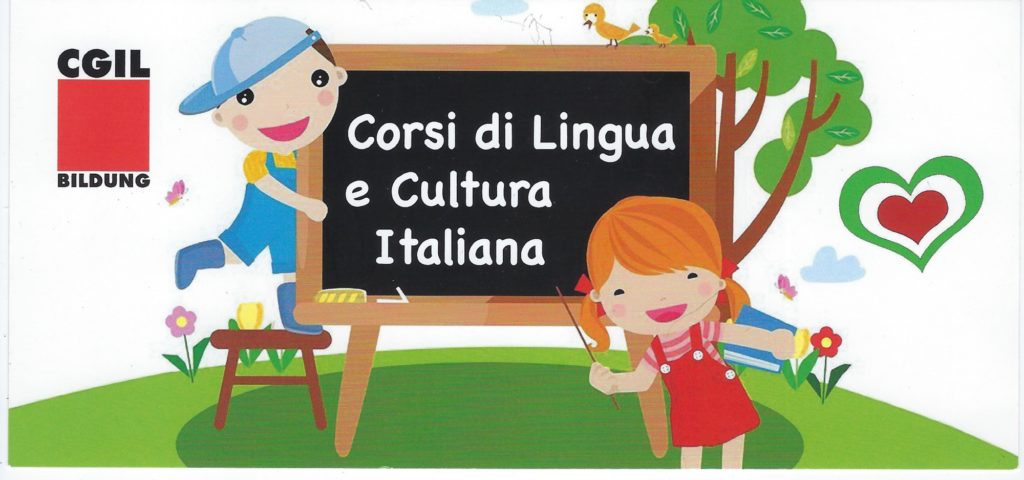Apprenticeships are worth it
At the beginning of the year 2001 around 3500 young people under the age of 25 years were registered unemployed in the cities of Frankfurt and Offenbach as well as in the districts of Main-Taunus and Offenbach. Approximately 40 per cent did not have a German passport, specialists even estimate the rate of young people coming from a migrant background to be as high as 60 to 70 per cent.
The CGIL-Association for Education wants to change this situation through the new project “Increasing the willingness of young migrants to undertake an apprenticeship”. This initiative is part of a seven stage project of the development partnership M.A.R.E. – which stands for migration and work in the area of Rhine-Main.
“Who occupies himself with the situation of migrants in Germany will notice very quickly that the failed integration runs like a threat through the central theme”, reports Vicky Pompizzi from the project leading team. This also includes children of the second and third generation who have been born and grown up in Germany. “They have problems with the German language, experience failure in school, think they have no chance in getting an apprenticeship and often they can’t even get the appropriate support from their parents. These young people with a foreign background don’t see the necessity to integrate themselves into German society as they think that it doesn’t offer them many alternatives” adds Pompizzi. The chairman of the CGIL-Association for Education Franco Marincola emphasizes: “It can only be of an advantage that an organisation like ours, that is very close to migrants take on the leadership of this part of the project. We have access to the young migrants and their parents due to the fact that our members can bring their own experiences into their work. They dominate the language of the target group, they know their culture and are familiar to their mentality.”
The work of the project focuses first on young people of Turkish, Italian and Moroccan origin – these are the strongest represented target groups in the area of Rhine-Main and show considerable difficulties in dealing with the question of professional training.
To realize the targets of this project the CGIL-Association for Education is building a network for migrants that consists of native speakers of different nationalities acting as role models, who give for example a presentation at a parents’ evening and serve young people of the respective society as a model. They are contact persons for young people and their parents and deliver the message of the project: “apprenticeships are worth it”.
Besides the CGIL-Association for Education contacts the schools of the region that have a high rate of children from migrant families. Here with the co-operation of the school leadership and teaching staff events are created and carried out to inform and increase the pupils awareness of the situation. Their aim is to motivate the young people and to support their interests. The best results were intended to be, and indeed have been visits to a company, specific training brochures and assessment tests in several languages.
In addition to this parents get invited to bilingual parents’ evenings. Here bilingual native role model speakers and speakers of different offices and institutions inform the parents of the German school and training system. Also participating are representatives of the department of unemployment, the Chamber of Industry and Commerce, the Chamber of Crafts, the trade unions and last but not least leading companies well positioned in the market.
A similar concept to increase the awareness of the people is being carried out on an administration level. Even here you will find people who appreciate further information regarding the situation and initial position of young foreign people. A “wrong” word although it is meant well can cause a lot of damage and scare off young people and ultimately risks destroying their motivation.
The main object of this work, which is based on levels that are built up on each other, is to bring together the different persons involved and to offer them an exchange platform. At the same time young people coming from a migrant background should be opened up and shown realistic chances how they can find access to a professional traineeship and eventual apprenticeship.
Not only young people coming from a migrant background can profit from the work of this project, it is also a chance for the regional economy of Germany. The support of the different chambers underlines that even for the industry and for the enterprises it is worth while to train young people of foreign origin. Their potential in speaking two languages and their knowledge of different cultures are of great value in an increasing globalisation of the markets. The German economy is asked to prove their internationality. “In Germany young people with these skills are unused human resources that can be of great value for the economy”, emphasizes Elisabetta Fortunato of the leading team project.





